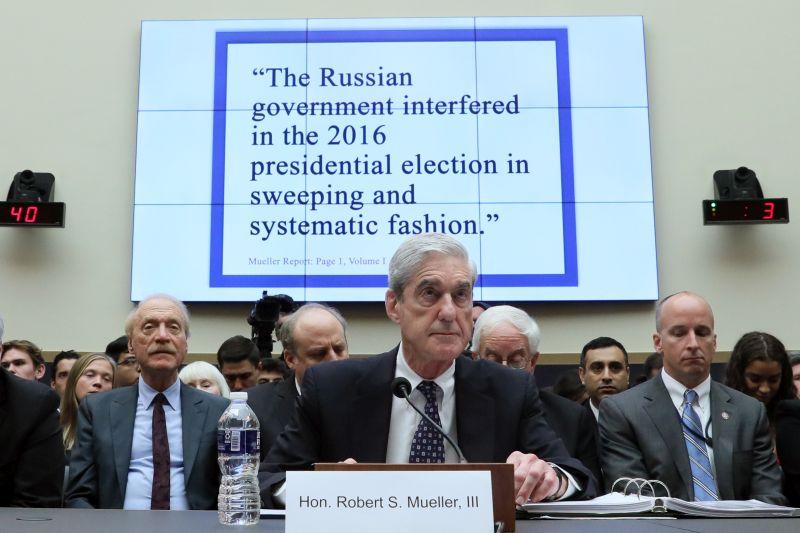As Labour attacks the Conservatives for suppressing a report on Russian ‘interference’ in UK politics, it seems this Brexit election won’t be without ‘Russia’.
‘It’s only a matter of time’ it occurred to me as I cast a glance over Dominic Cummings’ profile on Wikipedia a couple of months’ back. The mere mention that Cummings, Boris Johnson’s trusted advisor had spent several years in Russia, spoke Russian and enjoyed a bit of Dostoevsky was surely more than enough ammunition for the UK opposition, given the way ‘Russia’ has become almost a dirty word in itself over the last few years in the British and US political discourse. There was a half-hearted attempt to link Boris Johnson to Russian money in the Tory leadership race, but it didn’t gain much traction. But now with the Brexit election campaign kicking off, the gloves are off and we can only expect that every possible method of undermining each other will be used by the Conservatives and Labour parties alike.
We have perhaps not seen quite the hysteria over supposed Russian interference in elections here in the UK, as was in the US, but there were rumours of it after the vote to Leave the EU in the 2016 referendum. The general rule of thumb seems to be that if the result is not what the establishment wants or expects, then surely Russia must be to blame. After all, what could the alternative explanation be? That politicians are out of touch with the electorate? Surely not. This time, no sooner has the general election campaign begun, than the ‘Russia’ word has been used already to smear the Conservatives. The party has been accused by former attorney general Dominic Grieve of suppressing a parliamentary report into Russian interference in UK politics which it is said is being held up only by the PM’s office. Apparently the report normally takes 10 days to be cleared, but Johnson’s team has said it won’t be revealed until after the December election. Speculation is rife therefore about the contents of the report and how damaging they are to the Tory party. It has already been reported that the report details substantial donations made to the party by ‘Russians’.
This is where things get a bit ridiculous. For now the approach seems to be rather 2 + 2 = 5. Russians = Russian state sponsored interference. Anything remotely linked to Russia is automatically, thanks to the mainstream media and strategies used by UK foreign office initiatives such as the ‘Integrity Initiative’, branded as subversive and not to be trusted. Anti-Semitism is not to be tolerated at any cost within political parties but anti-Russian sentiments are, it seems, wholly acceptable.
There is an important aspect of Russian donations to the Conservative party which seems to escape most people. Most of the Russians in the UK, unlike other immigrants like the Polish community, are wealthy individuals who, like most affluent people, want to ensure that they retain their riches. The Conservative party is the very political party that represents their values and unlike Labour, does not threaten to raise taxes on their businesses. Any decision therefore by Russian businessmen to support the Tories ought to be taken at face value and not judged in the way that donations by other nationalities are also not judged. And yet, for political reasons, it seems that any possibility of linking politicians to ‘the Russian enemy’ will be utilised in what has become a very dirty game in recent years.
For once, you may say, it’s not Jeremy Corbyn who is being branded a ‘Soviet sleeper’ or ‘Putin propagandist’. Instead of Corbyn’s face being plastered over backgrounds of Red Square in a Russian-style hat in the media, it’s now Boris Johnson. While Labour has faced the brunt of such smear campaigns since Corbyn came to power, now it’s the Tories’ turn – they deserve yet, you could say. But the reality is that, as the Russiagate saga proved in the US, with desperate attempts by the Democrats to link Donald Trump to Russia, it is a fruitless exercise in terms of influencing public opinion but on the other hand, greatly harms our relationship with Russia.
Coming back to Dominic Cummings, and already UK Shadow Foreign Secretary Emily Thornberry has written to the government asking questions about the time Cummings spent in Russia from 1994 to 1997 after he graduated, and whether he has been through appropriate ‘security checks’. It’s as if now, any individual spending time in Russia has automatically been up to mischief, regardless of how long ago it was. Thornberry was apparently approached by an ‘official-level whistleblower’ who raised ‘serious concerns’ about just what Cummings was up to back then. Well anyone who knows anything about Russia knows that in the 90s it was a dynamic and rather anarchic place, but a great place for business opportunities. A quick scan of Wikipedia suggests business ventures was exactly what Cummings was engaged in there, and I’m sure he had a fun time of it. But it was a very different place to Russia today, and to imply that just because he lived in Russia over twenty years ago he shouldn’t be trusted is quite frankly ridiculous.
But this is where we’re at now in politics. It’s been a while since UK politics was sensible. Now in the Brexit era, anything goes and Russia remains an easy scapegoat. And nothing one sees or hears suggests this is likely to change in the near future…
Johanna Ross, journalist

